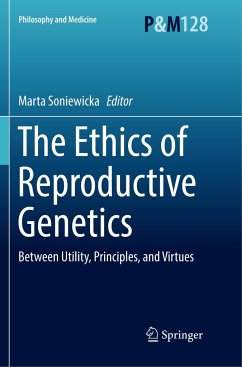
Womb Politics: A Short History of the Future of Human Reproduction
Versandkostenfrei!
Versandfertig in 6-10 Tagen
38,99 €
inkl. MwSt.
Weitere Ausgaben:

PAYBACK Punkte
19 °P sammeln!
This book offers a vision of politics that govern the womb; from antiquity ('be fertile and replenish the earth'), through the ages (hysterectomy, to extirpate women's 'hysteria'), up to the present time (abortion wars; assisted reproduction), and into the future (reprogenetics; the artificial womb). It explores how the womb has served humanity, either tacitly or explicitly, through the ages and examines how women have accepted and still perceive the rules created by men as natural - including the new anti-abortion laws in the USA - because 'that is the way things are.' The book also explores ...
This book offers a vision of politics that govern the womb; from antiquity ('be fertile and replenish the earth'), through the ages (hysterectomy, to extirpate women's 'hysteria'), up to the present time (abortion wars; assisted reproduction), and into the future (reprogenetics; the artificial womb). It explores how the womb has served humanity, either tacitly or explicitly, through the ages and examines how women have accepted and still perceive the rules created by men as natural - including the new anti-abortion laws in the USA - because 'that is the way things are.' The book also explores how the emerging of assisted reproduction technologies and novel genetic tools (reprogenetics) will pose additional challenges to womb bearers, as all women will be made to reproduce with IVF. What is more, the advent of the artificial womb is in sight; the gender and social implications of this development would be enormous. Certainly not just another organ, the womb has been and remains a powerful tool that cannot be left to the decisions of half of the population. This book engages a wide audience, including women and men, professionals and laypersons who are interested in gender, politics, legislation, women's health, and ethics.












